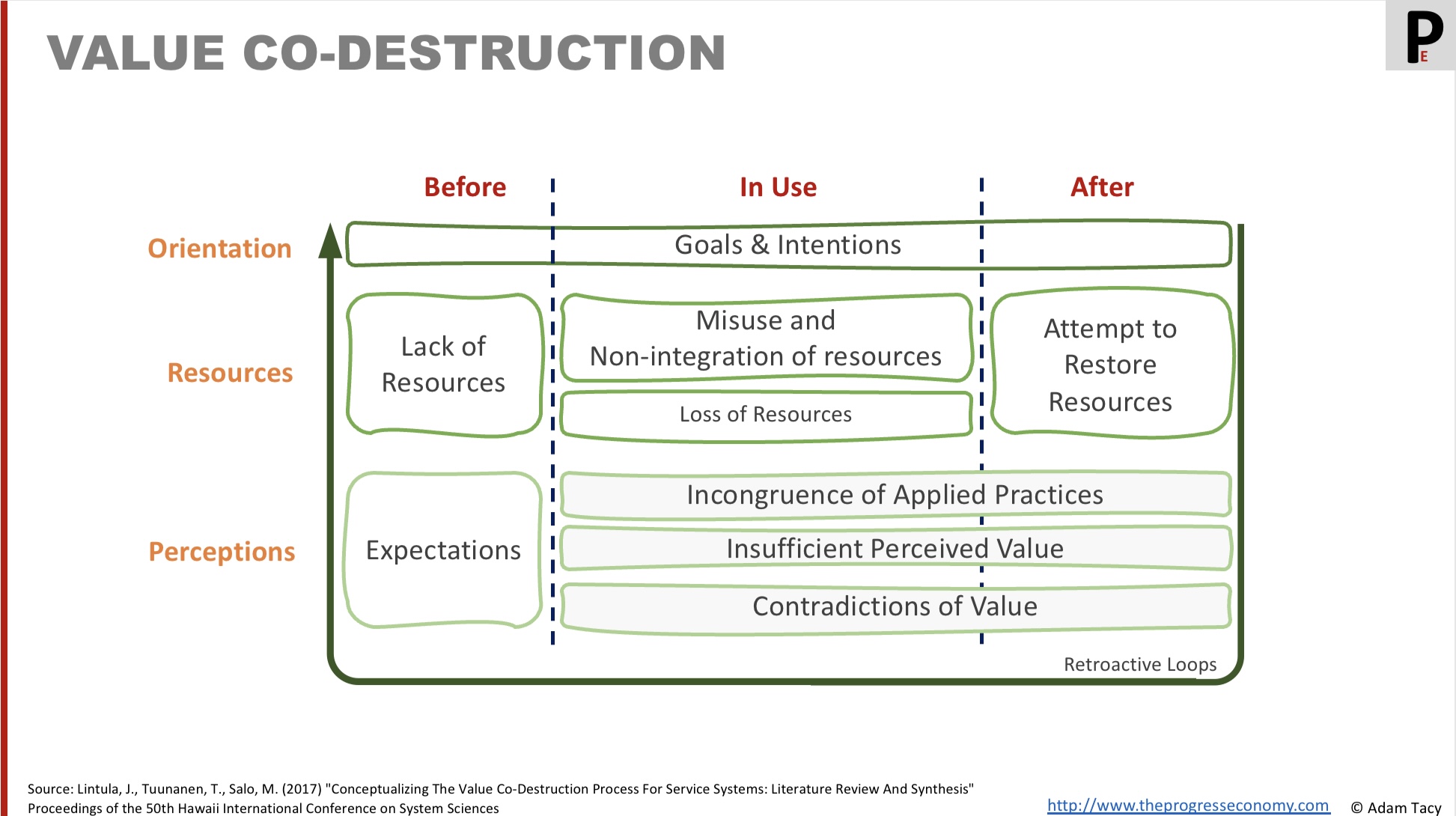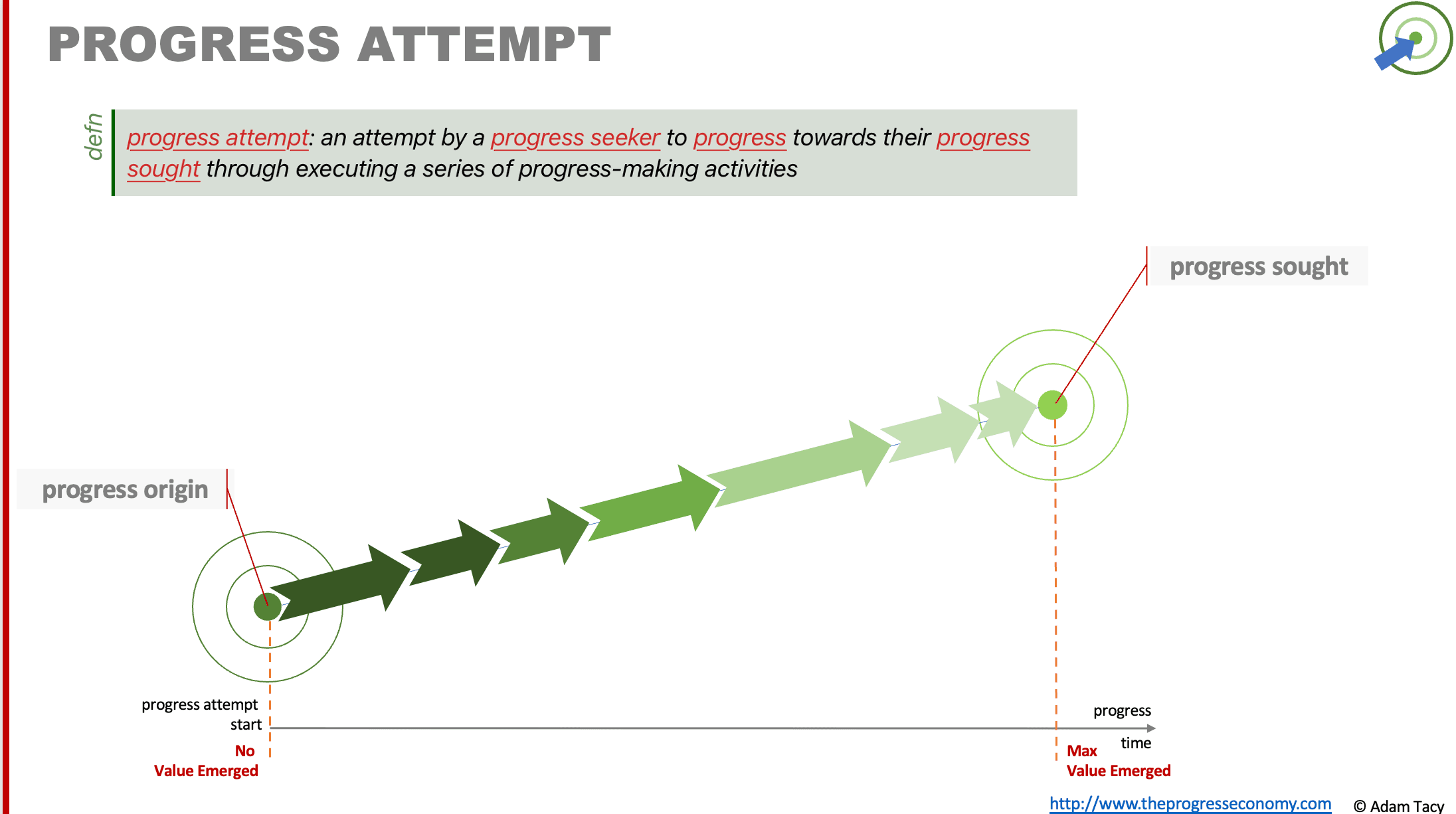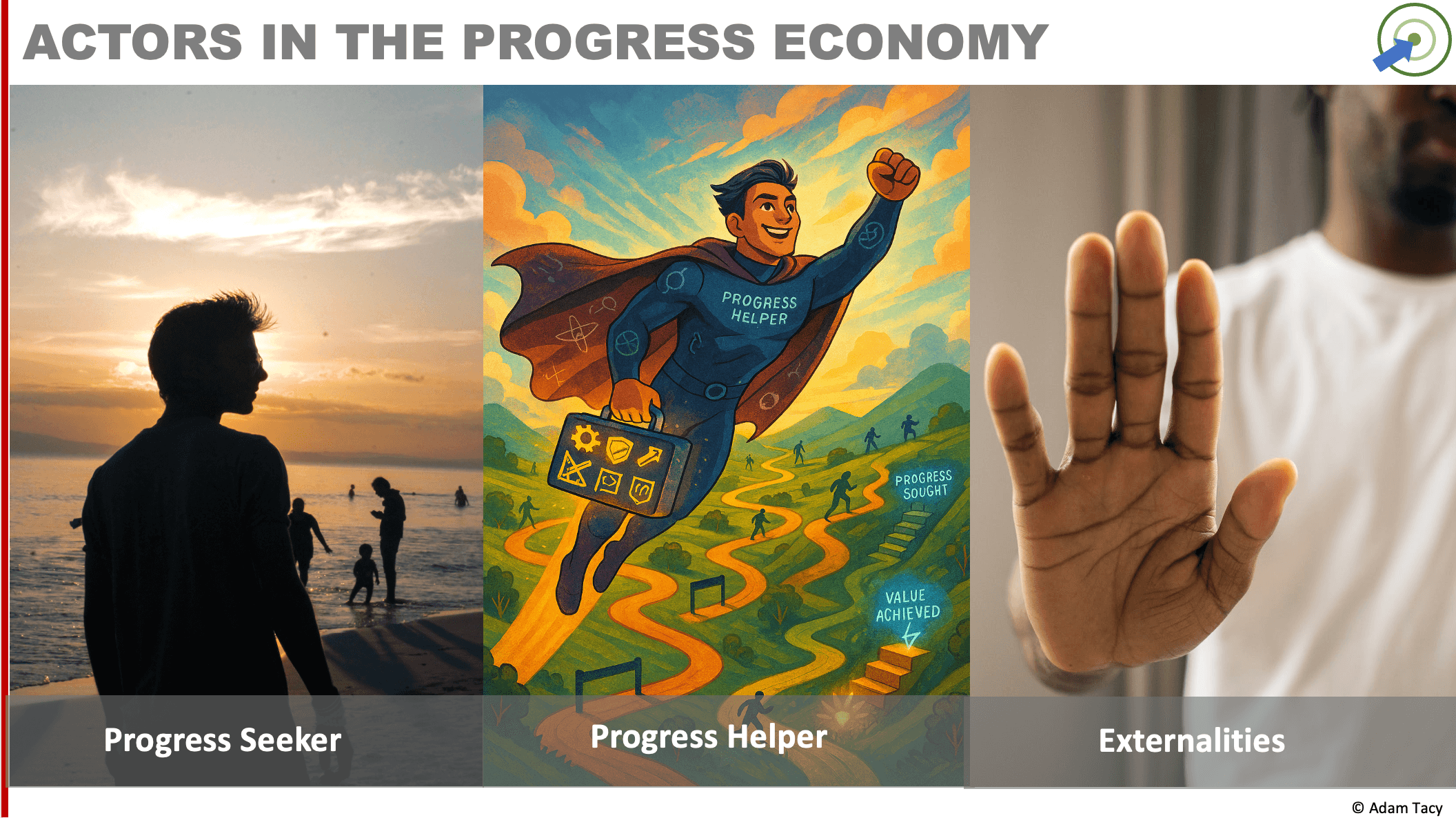Service Credits
What we’re thinking Service credits are value-less promises of future service representing a measure of effort. They mediate temporal and magnitude differences in service exchange and lubricate transitive indirect exchange. Money is a successful implementation of service credits; bitcoin, shells, rocks have been alternatives. …editing below this point They have no inherent value and can
Progress owner
What we’re thinking A progress owner is responsible for helping seekers make some specific progress. This means they are responsible for one or more proposition – including: They’re like a supercharged product owner, with responsibility for innovation (improving seeker’s progress) Editing below here Progress owner Progress helpers need to actively manage their offerings. They need
Location – a resource mix element
Editing below here Secondly there are those physical resources where progress is made. Such as buildings. The hospital where operations take place, for example. And we can think of elements in this category in terms of Bitner’s servicescapes. innovating physical resources Servicescapes can always be innovated. And often this will be tied to non-functional progress –
Goods – a resource mix element
Editing below here Goods are examples of operand resources. Remember that in order to make progress with these types of resources, they must be acted upon. They are usually physical, tangible objects. Although we can have digital goods such as digital films, music, and e-books, etc. The distinguishing feature of goods in the progress economy is that
Data – a resource mix elementData –
Editing below here
Systems – a resource mix element
Editing below here When we talk about systems in the progress resource mix, we’re once more referring to outward-facing systems rather than internal. That is, systems with which seekers interact in order to attempt making progress. The new client interfaces of the updated den Hertog model above. And we find that systems can be either
Employees – a resource mix element
What we’re thinking Employees are the human resources of the helper. As operant resources they act on other resources in an attempt to make progress. Some employees may be offered in the progress resource mix, such as: nurses, teachers, cleaners, traffic wardens, consultants, sales team and so on. Typically the capabilities carried by employees leveraged
Value destruction
What we’re thinking If we create value when making progress can we also destroy it? And since progress is a joint endeavour when engaging a progress proposition, leading to value co-creation, can value be co-destroyed? Yes, value can be destroyed. As it emerges from progress, if progress is hindered then it may be destroyed. However,
Progress Attempts
Seekers attempt to make progress by integrating capability-carrying resources in a series of progress-making activities. If they lack the capabilities, progress is affected What we’re thinking Progress attempts are the executional view of progress journeys – a deeper level of understanding that leads to better innovation and sales. They give us the insight on how
Actors in The Progress Economy
What we’re thinking There are 3 main actors in The Progress Economy: Critically, everyone is a Progress Seeker, including Helpers. The unequal distribution of resources required to make progress powers The Progress Economy through service exchange – often indirect and mediated via service credits (money being a dominant form). Our actors live on a stage where value (a


